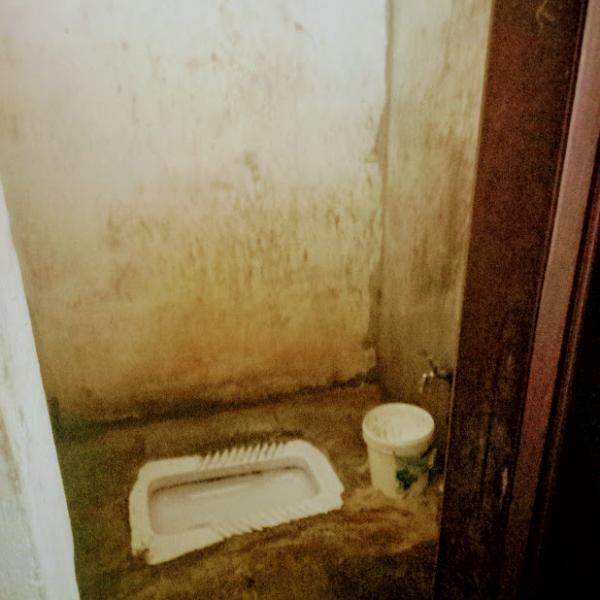
4 minute read
Accommodating the infection
In the midst of a global COVID-19, The pandemic has blurred the rigid threshold of the public and private, the outside and inside. Increased toilet hygiene awareness is more important than ever . 26 But Covid is not a particular time for these workers - their rights have long been ignored because they are short-lived and primarily considered a one-off. The previous chapter described the poor accommodation conditions experienced by migrant workers, such as no healthcare provided, lack of food and regular salary payment, limited freedom of movement, and unpaid overtime work. These issues have a long history. However, as covid-19 spread throughout Portugal and even the world, it reveals the problems previously hidden or ignored. The worst has come, and there are fears that migrant labour conditions will hit a new low.
The increasing covid-19 infection rate among migrant workers shows that Portugal implements strict supervision in almost all aspects of life; that is, it institutionalises the neglect of migrant workers in the country27. It is this neglect that explains the core of covid-19 crisis. Although the structures of migrant workers' dormitory buildings vary, they are often too crowded; most of them have no kitchen facilities and no self-isolation space. Any worker with symptoms must stay in their room and share "self-isolation" with their roommates. This practice was highly lethal and exacerbated the severe wave of covid-19 infection at that time.28 There is no air conditioning or proper ventilation, no bed bugs and cockroaches, and there is usually only one toilet for up to 80 or more people . Even when they managed to return home for a family reunion during the covid 29 outbreak period, the circumstances still remain. What comes after is massive hatred and blame from the internet towards migrant workers for the increase in new coronavirus cases.
Advertisement
In addition, the quarantine measures taken regarding migrant workers back home are also a massive challenge for them. During covid has radicalised the issue behind this layer of relationship, the government's attitude towards workers, and toilets as an examination for justice has become bare. In India, five migrant workers returning home have been forcibly quarantined by the government in an abandoned public toilet in Calcutta30. Although the Calcutta municipal company denied any such
Sanitation workers: The forgotten frontline workers in the 26 fight against the COVID-19 pandemic. https://www.wateraid.org/ca/media/sanitationworkers-the-forgotten-frontline-workers-in-the-fight-against-the-covid-19-pandemic
What is the impact of the COVID-19 pandemic on immigrants and their children? https://www.oecd.org/coronavirus/policy-responses/what-is-the-
27
impact-of-the-covid-19-pandemic-on-immigrants-and-their-children-e7cbb7de/
Portugal pledges funds for migrant housing after coronavirus outbreak. https://www.politico.eu/article/portugal-pledge-funds-migrant-housing-
28
coronavirus-outbreak/
Oral experience from Portugal migrant worker during the 29 field trip.
West Bengal: Mamata Banerjee government quarantines 30 five migrant workers in an abandoned public toilet in Kolkata. https://www.opindia.com/ 2020/06/west-bengal-govt-quarantines-5-migrant-workers-in-abandoned-public-toilet/
incidents, the Calcutta News report showed that it had placed the immigrants together with their belongings in an abandoned public toilet. Images show that the fixtures of the toilet and bathroom are broken, and the whole facility is full of garbage. The report also mentioned that although the workers restored the power supply 24 hours after setting up the isolation centre in the public toilet, there was no ventilation and no fan. This means that quarantined people will have to spend 14 days in such inhumane conditions. However, the decision to place migrant workers in public toilets was not surprising because when the government claimed that the number of coronavirus cases in the state had increased due to their introduction of coronavirus, the indifference or even hatred towards them had become apparent.
Put the lens back to Portugal; some progress has been made thanks to covid that drawing attention to overcrowded and unsanitary living conditions among migrant workers working in the monoculture industry. Portugal and Morocco signed an agreement in January 2022, highlighting legal minutiae for Moroccans to come to live and work in the EU member state . They claim the 31 deal is part of ongoing efforts to fight illegal migration and human trafficking on both sides. The question leads to the government's intention behind why they conducted or pledged these policies relating to immigration. All these are targeting one element: labour shortage. The European Commission published an article regarding the migrant worker's issue called Portugal: Migrants needed to solve labour shortage on 23 September 2021. As documented Portugal's Economy minister Pedro Siza Vieira said on 8 September that the country needed to attract migrant workers to solve its labour shortages32 .
when being asked what measures would be taken from the Portuguese government, the minister noted it was necessary to ensure solutions for the integration, housing, training and permanent residence of migrant workers, as well as for the education of migrant children33. The government was also looking for financing for housing construction.
In terms of agriculture - a sector usually offering only seasonal contracts to workers coming predominantly from overseas, the minister claimed that there were initiatives allowing workers to be involved in different tasks throughout the year. In the Alentejo region, this strategy helps to
Portugal signs immigration deal with Morocco. https://www.infomigrants.net/en/post/37857/portugal-signs-immigration-deal-with-morocco31
Portugal: Migrants needed to solve labour shortage. https://ec.europa.eu/migrant-integration/news/portugal-migrants-needed-solve-labour-32 shortage_en
Portugal Launches “Working in Portugal” Program for Employment of Immigrants. https://www.schengenvisainfo.com/news/portugal-launches-33 working-in-portugal-program-for-employment-of-immigrants/
attract workers who want to settle in Portugal for their lifetime, thus ensuring the stability of the labour force. Providing permanent jobs for workers also allows companies to avoid additional training and improve productivity.
But what about the toilet?
This crisis may provide opportunities for reforming the treatment of migrant workers, but minor policy adjustments are not enough. How Portuguese people view migrant workers, what rights migrant workers have and how they can advocate for their own body and well-being need to be substantially changed. The whole olive industry of Alentejo is based on the labour and hard work of migrant workers. They do not expect exceptional goodwill but only their fundamental labour rights.





